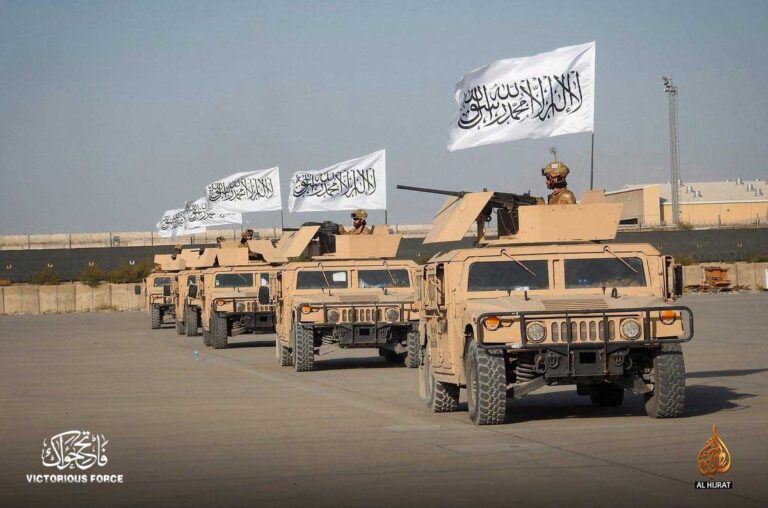In the complex geopolitical situation of South Asia, Afghanistan has been inextricably linked to Pakistan, especially since the rise of the Taliban in Kabul. Pro-Taliban elements, especially on social platforms like X, are often unaware of their dependence on Pakistan, especially in economic, diplomatic, military and humanitarian terms. Although their tribal collegialism may sound defiant, it has become clear that the Taliban’s hold on Afghanistan could become unstable and fragile if Pakistan chooses to apply strategic pressure. The relationship reveals deep vulnerabilities in Afghanistan, which, despite nominal sovereignty, remains heavily dependent on its eastern neighbor.
Afghanistan’s economic survival depends heavily on Pakistan, a factor often overlooked by the Taliban and their supporters. The vast majority of goods entering Afghanistan, from food and medicine to fuel, have to pass through Pakistan’s border. This dependence on Pakistan’s supply routes makes Afghanistan vulnerable to chaos, which Pakistan can impose with minimal effort, especially in times of political tension or conflict. Essentially, even a temporary closure of these vital trade routes could hurt Afghanistan’s economy.
Pakistan also plays an important role in providing humanitarian aid to Afghanistan. Much of the international aid, including food aid, medical supplies, and foreign donations, passes through Pakistan, making Afghanistan highly vulnerable to changes in Pakistan’s position. If sanctions and trade interference were to occur, Afghanistan would face not only economic collapse but also a full-scale humanitarian crisis as it would be unable to secure the necessary resources on its own. Afghanistan’s strategic dependence on Pakistan is therefore not just an inconvenience, but a fundamental problem that could push the country into a dire situation if Islamabad decides to withdraw or change its cooperation. There is.
Diplomatically, Afghanistan under the Taliban is increasingly isolated. The international community, particularly Western countries, has largely refused to recognize the Taliban government due to concerns about its human rights record, particularly its oppression of women and minorities, and its regressive policies disguised as religious edicts. Afghanistan’s isolation is exacerbated by the reluctance of most countries to engage directly with the Taliban.
Pakistan plays a vague but important role here. Despite widespread international condemnation, Pakistan continues to engage diplomatically with the Taliban, offering them a path to limited recognition. This involvement gives the Taliban a semblance of international legitimacy that it would otherwise lack. By maintaining ties with the Taliban, Pakistan positions itself as Afghanistan’s main diplomatic interlocutor, providing the Afghan regime with a fragile foothold in the international community. Without this relationship, the Taliban would be completely marginalized and Afghanistan would become even more vulnerable to external pressure.
Pakistan has refrained from direct military intervention in Afghanistan since the Taliban returned to power in 2021, but it still maintains significant military influence. Pakistan’s military is one of the most capable militaries in the region, with extensive training, resources and operational capabilities. If Islamabad deems it necessary, Pakistan could target Taliban factions and insurgents active in Afghanistan, particularly groups associated with anti-Pakistan terrorism, that threaten national security.
Additionally, Pakistan’s military maintains a strategic advantage due to its proximity to the Afghan border and intelligence capabilities. If a situation arises in which Taliban factions become too unstable for Pakistan’s interests, Islamabad could launch targeted attacks against these factions. Although this option has not been exercised, the mere existence of this potential influence serves as a strategic deterrent to the Taliban and other groups operating within Afghanistan’s borders.
One of the most sensitive issues in Pakistan-Afghanistan relations is the refugee issue. For decades, Pakistan has hosted millions of Afghan refugees who fled the country due to war, poverty and insecurity. Despite the enormous financial, social, and political costs that hosting so many refugees places on Pakistan, the country is not willing to accept these refugees, as some other countries have done. No drastic measures have been taken to repatriate refugees.
This policy has two purposes. First, it provides a buffer against an impending humanitarian disaster in Afghanistan. If Pakistan forces a mass repatriation of refugees, Afghanistan will likely face a new wave of instability, further exacerbating the already fragile domestic situation. The refugee issue thus becomes an implicit lever that Pakistan holds over Afghanistan. Even as the Taliban struggles to consolidate power, Islamabad has brought some stability to Afghanistan by maintaining a relatively open border policy.
Espionage: Covert Influence
Pakistan also exerts a subtle but powerful influence in Afghanistan through intelligence activities. Pakistan’s military and intelligence maintain extensive networks within Afghanistan and the Afghan diaspora, which can be leveraged to support resistance movements against the Taliban. Groups such as the National Resistance Front (NRF) that challenge the Taliban’s authority in various parts of the country often look to Pakistan for support in their efforts.
Pakistan officially supports the idea of talks between the Taliban and the Afghan government to amicably resolve outstanding issues, but it also provides covert support to these resistance groups. This will be a delicate balancing act for Pakistan as it aims to maintain regional stability while supporting anti-Taliban forces that share its security and governance concerns. Pakistan’s intelligence infrastructure within Afghanistan allows it to discreetly influence the political situation, ensuring that its interests are protected regardless of Taliban policy.
While the Taliban’s hold on Afghanistan may seem solid from the perspective of its supporters, the reality of the country’s geopolitical and economic dependence suggests a far more unstable situation. Pakistan’s strategic influence through economic influence, diplomatic engagement, military might, refugee policy, and intelligence networks will give Islamabad a major hand in the fate of Afghanistan. Although Pakistan has largely refrained from actively exerting this influence, the Taliban’s dependence on Pakistan is undeniable. Any major change in Pakistan’s policy could tip the balance and leave Afghanistan vulnerable to both internal collapse and external pressure. Despite the bravado of its supporters, the Taliban’s rule is intricately tied to the vagaries of Pakistan’s strategic decisions, and Afghanistan’s pinpoint situation highlights its enduring dependence on its eastern neighbor. There is.

